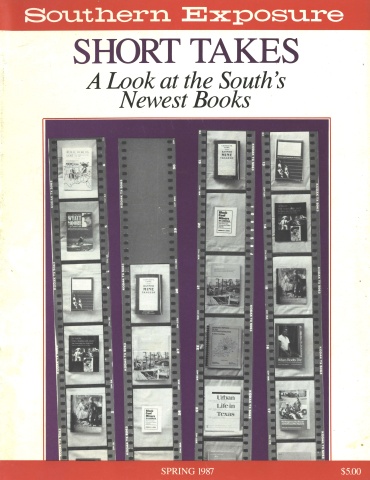My Turn: Biased Reporting by the Press

This article originally appeared in Southern Exposure Vol. 15 No. 1, "Short Takes." Find more from that issue here.
Conservatives commonly complain that the media is to “liberal” or “left wing.” But the press (including the print media, where I work) is mostly right wing, nowhere more plainly than in its pro-business, anti-union bias.
Unions are routinely disparaged on newspaper editorial pages. Few papers, even those that fancy themselves “liberal,” consistently support unions or union positions. On news pages, unions rarely get coverage except during strikes, which are usually termed “labor disputes,” sometimes “bitter labor disputes.” Management makes “offers”; unions make “demands.”
A newspaper may have management “declining” comment on a strike or con tract negotiations, but a union “refusing” comment. At the same time, a newspaper might describe labor leaders as “union bosses.”
Even seemingly innocuous newspaper feature stories can reflect anti-union bias. “Human interest” or “personality profile” stories are usually about business owners or managers who tout “free enterprise,” meaning “union-free enterprise.” Almost without exception, they are depicted as pillars of the community. Many newspapers have business writers, but labor writers are rare indeed. When general assignment reporters, with little knowledge of how collective bargaining works, are assigned to a labor story, the results are invariably superficial or worse.
Publishers routinely encourage — sometimes order — reporters not to write stories that might make unions look good. At a small Kentucky paper, a publisher was angered when one of his reporters covered an appearance by William Winpisinger, president of the International Association of Machinists and Aerospace Workers. The reporter was told not to show such initiative again.
In another instance, there was the Northern company that broke a union, moved its factory to a small Southern town and hired non-union workers. A factory official told a local reporter that her newspaper’s publisher, an ardent Reaganite, promised that the unionbusting would not be mentioned in the story. The official explained to the reporter that her story was supposed to be “positive.”
Most newspapers portray unions as selfish, special interest groups that unnecessarily burden society and the economy. Ignored is the fact that unions have been at the forefront of many important reform efforts, including the civil rights and women’s movements. Also ignored is the fact that many university studies, including recent ones at Harvard and North Carolina State, demonstrate that union workers are usually more productive than nonunion workers. But you wouldn’t know these facts from reading the “objective” press.
In short, the pro-management bias of even the so-called liberal media means unions are scorned on editorial pages and get negative or shallow coverage on news and feature pages.
Tags
Berry Craig
Berry Craig is a veteran daily newspaper reporter and associate editor of the AFL-CIO’s Kentucky Labor News. (1987)